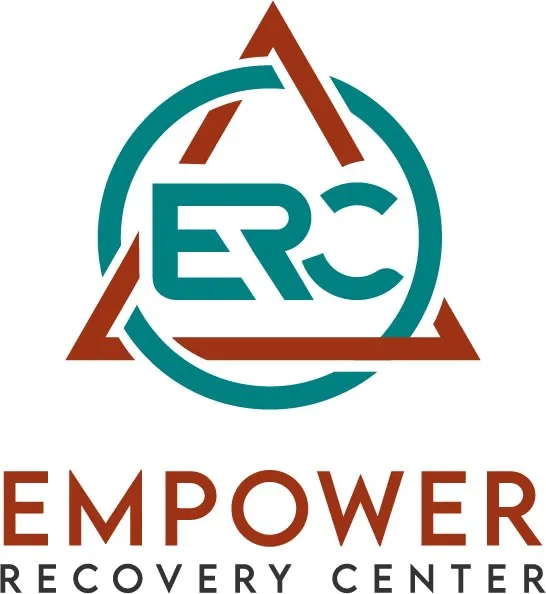Explore leading fentanyl rehab centers and treatment facilities in Los Angeles and nearby areas. Fentanyl addiction treatment programs provide specialized care to address the dangers of this powerful opioid. Medically supervised detox ensures safety during withdrawal, while therapy and counseling help individuals overcome dependency and develop healthy coping skills. Through peer support, relapse prevention, and education about fentanyl risks, these facilities empower lasting recovery and a return to healthier living.
Ads
More Info
Advertisement Disclosure
Our website is funded by advertisers who pay for prominently labeled placements.
Read More71 Rehab Centers were found
Filters
Locations
- Los Angeles(+98)
- Culver City(+14)
- Westlake Village(+13)
- Woodland Hills(+11)
- Beverly Hills(+10)
- Santa Monica(+9)
- Sherman Oaks(+7)
- West Hollywood(+6)
- Malibu(+5)
- Chatsworth(+5)
- Pasadena(+5)
- Encino(+5)
- Redondo Beach(+4)
- Lancaster(+4)
- Reseda(+4)
- Studio City(+4)
- Northridge(+3)
- San Mateo(+3)
- Lynwood(+3)
- Vernon(+3)
- Van Nuys(+3)
- Tarzana(+3)
- North Hollywood(+3)
- Glendale(+3)
- Gardena(+3)
- Riverside(+3)
- Granada Hills(+2)
- Shadow Hills(+2)
- Venice(+2)
- Orange County(+2)
- Pomona(+2)
- West Hills(+2)
- Valley Village(+2)
- Burbank(+2)
- Brentwood(+2)
- Long Beach(+2)
- Sun Valley(+1)
- Torrance(+1)
- San Jacinto(+1)
- San Pedro(+1)
- Upland(+1)
- Whittier(+1)
- Toluca Lake(+1)
- Thousand Oaks(+1)
- Simi Valley(+1)
- Mission Viejo(+1)
- Acton(+1)
- Beaumont(+1)
- Wilmington(+1)
- Panorama City(+1)
- Anaheim(+1)
- Laguna Hills(+1)
- Inglewood(+1)
- Alhambra(+1)
- Rosemead(+1)
- Maywood(+1)
- Manhattan Beach(+1)
- Monterey Park(+1)
- Claremont(+1)
- Covina(+1)
- La Puente(+1)
- Pico Rivera(+1)
- San Fernando(+1)
- Azusa(+1)
- Santa Fe Springs(+1)
- Glendora(+1)
- Agoura Hills(+1)
- El Segundo(+1)
- Duarte(+0)
- Sunland(+0)
- Downey(+0)
- Cudahy(+0)
- El Monte(+0)
- Compton(+0)
- Hermosa Beach(+0)
- Cerritos(+0)
- Calabasas(+0)
- Bellflower(+0)
- Bell Gardens(+0)
- Avalon(+0)
- Arcadia(+0)
- Altadena(+0)
- Paramount(+0)
- South El Monte(+0)
- Walnut(+0)
- West Covina(+0)
- Santa Clarita(+0)
- San Gabriel(+0)
- San Dimas(+0)
- Rolling Hills(+0)
- Orange(+0)
- Hawaiian Gardens(+0)
- Palmdale(+0)
- Norwalk(+0)
- Montebello(+0)
- Lakewood(+0)
- South Pasadena(+0)
- Carson(+0)
- Hawthorne(+0)
Conditions
- Drug(+278)
- Alcohol(+219)
- Mental Health(+195)
- Opioid(+193)
- Cocaine(+184)
- Trauma(+180)
- Methamphetamine(+177)
- Benzodiazepines(+174)
- Heroin(+173)
- Prescription Drugs(+159)
- Depression(+152)
- Anxiety(+149)
- Xanax(+145)
- Synthetic Drugs(+138)
- PTSD(+133)
- Adderall(+131)
- Marijuana(+112)
- Bipolar(+109)
- Ecstasy(+104)
- MDMA(+99)
- Behavioral Health(+93)
- LSD(+93)
- Psychedelics(+91)
- Fentanyl(+71)
- Stress(+71)
- OCD(+69)
- Personality Disorders(+63)
- ADHD(+61)
- Gambling(+38)
- Eating Disorders(+35)
- Anorexia(+34)
- Binge Eating Disorder(+34)
- Bulimia(+33)
- Schizophrenia(+32)
- Gaming(+28)
- Internet Addiction(+27)
- Sex Addiction(+25)
- Burnout(+23)
- Pornography(+22)
- Shopping(+10)
- Narcissism(+8)
Insurances
- BlueCross BlueShield(+129)
- Aetna(+126)
- Anthem(+105)
- Cigna(+105)
- United Healthcare(+66)
- Humana(+63)
- Optum(+53)
- Medicaid(+53)
- MHN(+51)
- Magellan Health(+47)
- Kaiser Permanente(+39)
- Medicare(+31)
- GEHA(+31)
- ComPsych(+29)
- Highmark(+25)
- AmeriHealth(+13)
- Tufts Health(+11)
- Oscar(+9)
- CareFirst(+9)
- Molina Healthcare(+8)
- Intermountain Healthcare(+6)
- Beacon Health Options(+2)
- UMR(+2)
- NYSHIP(+2)
- ILWU(+2)
- Geisinger(+2)
- Empire Life(+2)
- Empire BCBS(+2)
- Bright Health(+2)
- GuideWell(+1)
Therapies
Comprehensive Fentanyl Addiction Treatment Programs in Los Angeles
Fentanyl addiction has become one of the most dangerous public health crises in the United States, with overdose deaths skyrocketing in Los Angeles and across the country. As a synthetic opioid that is 50 to 100 times more potent than morphine, fentanyl is responsible for a significant percentage of opioid-related fatalities. Many individuals become addicted unknowingly, as fentanyl is often mixed into heroin, cocaine, and counterfeit prescription pills without the user’s knowledge. If you or a loved one is also struggling with other forms of substance use or addiction, understanding the variety of conditions and risks is crucial.
Breaking free from fentanyl addiction is incredibly challenging due to its extreme potency and the severity of withdrawal symptoms. Professional rehab programs in Los Angeles offer medical detox, therapy, and long-term support to help individuals overcome dependency and rebuild their lives. Different levels of care are available to match the needs and severity of each individual’s situation.
Understanding Fentanyl Addiction and Why It’s So Dangerous
Fentanyl works by binding to opioid receptors in the brain, producing intense pain relief and euphoria. Unlike prescription opioids, which have regulated dosages, fentanyl is often manufactured illegally, leading to unpredictable potency levels. A dose as small as a few milligrams can cause a fatal overdose, making fentanyl one of the most lethal drugs available.
Many individuals who use fentanyl do not even realize they are taking it, as it is frequently cut into street drugs. This increases the risk of accidental overdose, as users believe they are taking a standard dose of heroin or a prescription opioid when, in reality, they are consuming a much more powerful substance. For those who have used a combination of substances, including cocaine or benzodiazepines, the risks become even more severe.
Symptoms of Fentanyl Withdrawal
Fentanyl withdrawal is one of the most intense and physically painful withdrawal experiences. Many individuals relapse simply to escape the overwhelming symptoms, which can begin within hours of the last dose. Withdrawal can last for several days or even weeks, depending on the severity of the addiction.
Common withdrawal symptoms include muscle and joint pain, nausea, vomiting, diarrhea, extreme sweating, chills, severe anxiety, and intense drug cravings. Many individuals also experience insomnia, agitation, and depression, making it difficult to function without professional support. Because fentanyl withdrawal can be so severe, medical detox and therapy are strongly recommended to help manage symptoms safely.
Medically Supervised Detox for Fentanyl Addiction
Detoxing from fentanyl without medical supervision is dangerous and rarely successful. In a professional detox facility, doctors and addiction specialists help individuals taper off the drug while managing withdrawal symptoms with medications such as methadone or buprenorphine. These medications ease cravings and reduce withdrawal severity, making the process more manageable. This approach is especially important for those who have used opioids long-term or have a history of opioid addiction.
Detox is only the first step in recovery. Many individuals require additional inpatient or outpatient treatment to address the psychological and behavioral aspects of addiction. Without proper follow-up care, relapse is common, as fentanyl cravings can persist long after detox is complete.
Therapy and Treatment Approaches for Fentanyl Addiction
Overcoming fentanyl addiction requires more than just stopping drug use. Many individuals struggle with unresolved trauma, mental health conditions, and deep-seated emotional pain that contributed to their substance use. Trauma-informed therapy helps individuals develop healthier coping mechanisms and address the underlying reasons for their addiction.
Cognitive-behavioral therapy is widely used to help individuals recognize and change destructive thought patterns that fuel addiction. Group counseling provides peer support and accountability, reinforcing the idea that recovery is possible with the right support system. Comprehensive drug rehab programs may include a mix of evidence-based therapies, peer support, and family involvement for lasting results.
Medication-assisted treatment (MAT) is often recommended for fentanyl addiction, as it helps prevent relapse by stabilizing brain chemistry. Medications such as naltrexone block opioid effects, reducing the risk of overdose if relapse occurs. These strategies can also be applied to those with a history of alcohol or polysubstance use disorders.
The Long-Term Effects of Fentanyl Use
Fentanyl use has devastating effects on the body and brain. Long-term use can cause permanent damage to the respiratory system, weakening the ability to breathe properly. Many individuals also experience cognitive impairment, including memory loss, difficulty concentrating, and emotional instability. Chronic use damages internal organs, weakens the immune system, and increases the risk of infections such as hepatitis C and HIV.
Mentally, fentanyl use can lead to severe depression, anxiety, and emotional numbness. Many individuals lose interest in activities they once enjoyed and struggle to rebuild their sense of identity in recovery. These long-term effects make continued therapy and support essential even after completing a rehab program.
Life After Fentanyl Rehab
Successfully completing a fentanyl rehab program is a major accomplishment, but the journey doesn’t end there. Many individuals face challenges as they reintegrate into daily life, including rebuilding relationships, finding stable employment, and learning how to manage stress without substances.
Aftercare services such as sober living homes, ongoing therapy, and support groups help individuals maintain their sobriety and avoid relapse. Relapse prevention strategies focus on identifying triggers, developing coping mechanisms, and establishing a strong support system to navigate the difficulties of long-term recovery.
Building a meaningful, fulfilling life is crucial for maintaining sobriety. Many individuals find new hobbies, reconnect with family, or pursue career goals as they move forward. While fentanyl addiction can feel overwhelming, recovery is possible with the right treatment and support.
Finding the Right Fentanyl Rehab in Los Angeles
Selecting the right rehab program depends on the severity of addiction, individual needs, and personal circumstances. Inpatient programs are often recommended for fentanyl addiction due to its high relapse risk, but outpatient treatment can be effective for those with a strong support system at home.
Some rehab centers specialize in dual diagnosis treatment, addressing both substance use and underlying mental health conditions. Speaking with an addiction specialist can help determine the best course of action and ensure individuals receive the level of care they need. For more information about other substance use and mental health conditions, visit our conditions directory for detailed guides and resources.
Frequently Asked Questions
How long does fentanyl withdrawal last?
Can fentanyl addiction be treated without medication?
What are the biggest risks of fentanyl relapse?
Does insurance cover fentanyl rehab in Los Angeles?
Ads
More Info
Advertisement Disclosure
Our website is funded by advertisers who pay for prominently labeled placements.
Read More













































